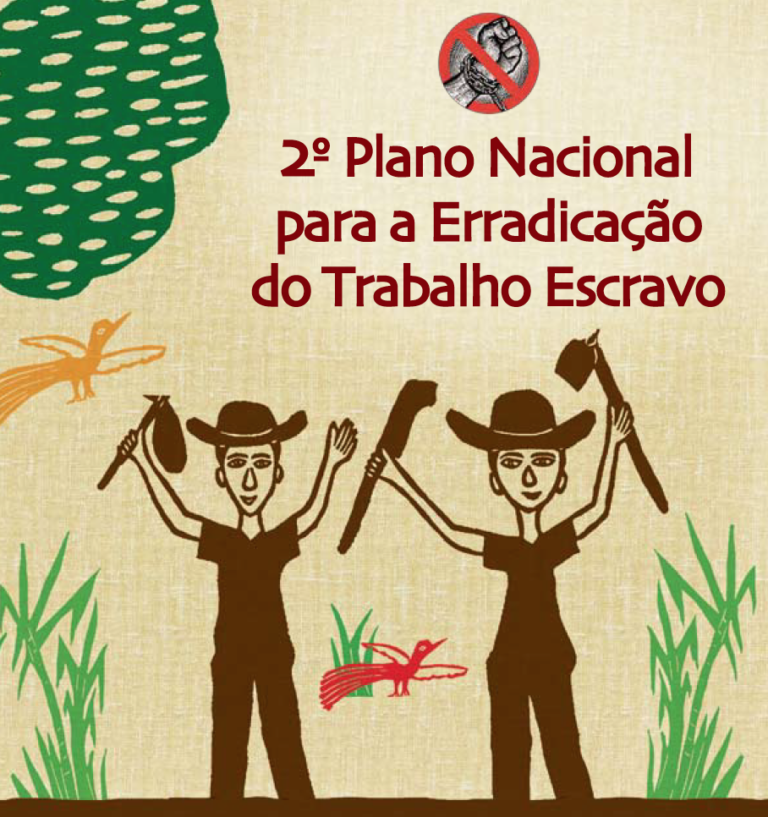Este 2º- Plano Nacional para Erradicação do Trabalho Escravo foi produzido pela Conatrae – Comissão Nacional para a Erradicação do Trabalho Escravo e representa uma ampla atualização do primeiro plano. Aprovada em 17 de abril de 2008, esta nova versão incorpora cinco anos de experiência e introduz modificações que decorrem de uma reflexão permanente sobre as distintas frentes de luta contra essa forma brutal de violação dos Direitos Humanos.
Hoje, o País pode se orgulhar do reconhecimento internacional que obteve a respeito dos progressos alcançados nessa área: 68,4% das metas estipuladas pelo Plano Nacional foram atingidas, total ou parcialmente, segundo avaliação realizada pela Organização Internacional do Trabalho – OIT. Para se quantificar esse avanço, registre-se que entre 1995 e 2002 haviam sido libertadas 5.893 pessoas, ao passo que, entre 2003 e 2007, 19.927 trabalhadores em condições análogas à escravidão foram resgatados dessa condição vil pelo corajoso e perseverante trabalho do Grupo Especial de Fiscalização Móvel, sediado no Ministério do Trabalho.

